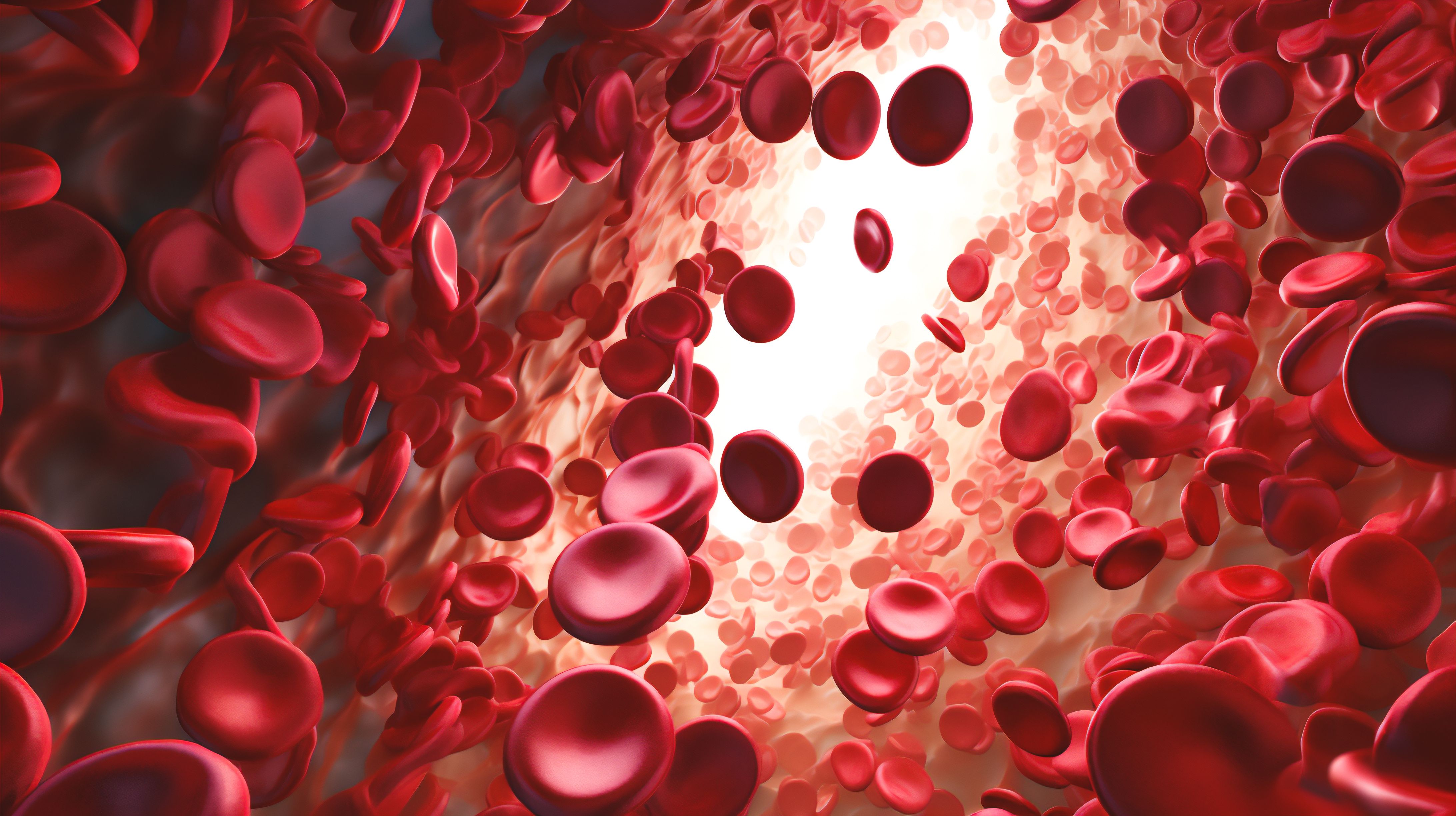FDA Grants NX-5948 Fast Track Designation in R/R Waldenström Macroglobulinemia
The FDA granted fast track designation to NX-5948 for treating relapsed/refractory Waldenström macroglobulinemia after 2 or more lines of therapy, including a BTK inhibitor.
A close-up of red blood cells flowing through a vein: © catalin - stock.adobe.com

- The FDA granted fast track designation to NX-5948, a brain-penetrant, orally bioavailable BTK degrader, for treating relapsed/refractory (R/R) Waldenström macroglobulinemia (WM) after 2 or more lines of therapy.
- Data from the ongoing NX-5948-301 trial (NCT05131022) were presented at the 12th International Workshop on Waldenstrom’s Macroglobulinemia.
- The phase 1a trial is enrolling up to 66 patients with non-Hodgkin lymphoma (NHL)/WM, escalating NX-5948 doses from 50 mg to 600 mg daily, with a phase 1b cohort for patients with prior Bruton’s tyrosine kinase (BTK) inhibitor treatment.
The FDA granted NX-5948, a brain-penetrant, orally bioavailable, small molecule, highly selective BTK degrader, fast track designation for the potential treatment of adult patients with relapsed/refractory WM who have received 2 or more lines of therapy, including a BTK inhibitor.1
This fast track designation follows positive data from the NX-5948-301 trial, which were presented at the 12th International Workshop on Waldenstrom’s Macroglobulinemia.2 According to the findings, 9 patients were evaluable for response. Among these 9 patients, 7 reached an objective response and 2 had stable disease, all of which were partial and seen at the first assessment, which took place at week 8 of treatment.
Moreover, the observed responses were seen regardless of baseline MYD88 or CXCR4 mutation status. A total of 5 patients continued treatment, with 2 of them staying on treatment for over 1 year.
“Fast track designation for NX-5948 is an important recognition of the unmet patient need in WM, particularly in the growing number of patients whose cancer has progressed following BTK inhibitor therapy,” said Arthur T. Sands, MD, PhD, president and chief executive officer of Nurix Therapeutics, in a press release.1 “This designation follows encouraging safety and efficacy data from our ongoing phase 1 clinical trial, demonstrating early promise of clinical benefit with potential for durable outcomes. We continue to enroll [patients with] WM in the ongoing phase 1b expansion cohort and anticipate sharing additional clinical data in 2025.”
About the Phase 1 Trial in WM
In the first-in-human, multicenter, open-label, phase 1a/1b trial, investigators are evaluating the safety and anti-cancer activity of NX-5948 in patients with advanced B-cell malignancies.3 Phase 1a, the dose-escalation portion of this trial, is enrolling patients at least 18 years of age with relapsed/refractory WM, NHL, chronic lymphocytic leukemia (CLL), or small lymphocytic lymphoma (SLL) who have received at least 2 prior lines of therapy and have an ECOG performance status of 0 or 1. This portion of the trial plans to enroll up to 66 patients in the NHL/WM cohort. Here, they will be given NX-5948 at escalating doses from 50 mg daily to 600 mg daily.
For the phase 1b dose-expansion cohort of the trial, patients with WM who have relapsed/refractory disease will be enrolled if they have also received treatment with a prior BTK inhibitor. The efficacy of NX-5948 at the dose(s) selected in phase 1a of the study will be evaluated in this portion in up to 7 expansion arms of patients with histologically confirmed relapsed/refractory B-cell malignancy indications who have received the specified prior therapies.
As of the data cutoff date of October 10, 2024, baseline characteristics were available for the first 13 patients with WM enrolled in the phase 1a and 1b portions of the study.2 The median age was 74 (range, 64-82), and patients had received a median of 3 prior lines of therapy (range, 2-5). All had previously received a BTK inhibitor and chemotherapy or chemoimmunotherapy. A total of 3 patients were previously treated with pirtobrutinib (Jaypirca), and 1 patient was previously treated with a BCL2 inhibitor. Further, baseline MYD88 and CXCR4 mutations were found in 8 and 2 patients, respectively.
About NX-5948
NX-5948, an investigational, orally bioavailable, brain penetrant, small molecule degrader of BTK, previously was shown to be highly potent against a range of tumor cell lines resistant to current BTK inhibitor therapies.1
In January 2024, NX-5948 received FDA fast track designation for the treatment of adult patients with relapsed/refractory CLL/SLL who have received 2 or more prior lines of therapy, including a BCL2 inhibitor and a BTK inhibitor.1 Also in November 2024, the European Medicines Agency granted PRIME designation to the agent for the same indication.
REFERENCES
Nurix Therapeutics receives U.S. FDA fast track designation for NX-5948 for the treatment of relapsed or refractory Waldenstrom’s macroglobulinemia. News release. Nurix Therapeutics. December 19, 2024. Accessed December 19, 2024. https://tinyurl.com/5cr9hdbh
O’Connor, P. NX-5948: BTK degrader with activity in lymphoid malignancies. Presented at: 12th International Workshop on Waldenstrom’s Macroglobulinemia. October 19, 2024; Prague, Czech Republic.
A study of NX-5948 in adults with relapsed/refractory B-cell malignancies. ClinicalTrials.gov, July 11, 2024. Accessed December 19, 2024. https://clinicaltrials.gov/study/NCT05131022










